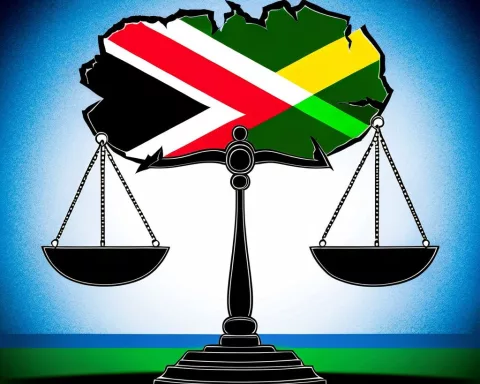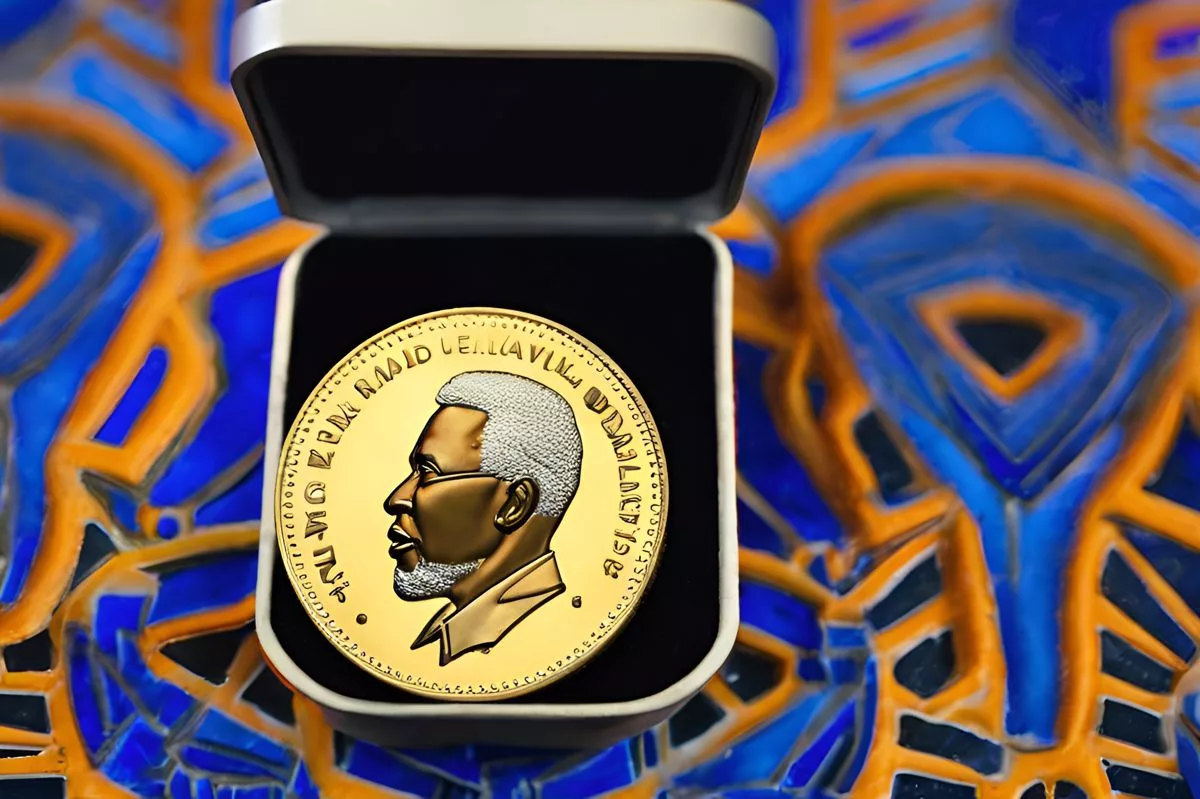Professor Muse Nkondo was a towering figure in South Africa’s political and academic arena, with a legacy that permeates essential sectors like tourism and public administration. He was a defender of human rights and an exceptional advocate for social cohesion and unity. His wisdom and teachings will continue to guide South Africans towards a brighter and more prosperous future. As we honor Professor Nkondo, let’s strive to replicate his dedication, commitment, and enthusiasm, and advance his legacy of unity, social cohesion, and nation-building.
Who was Professor Muse Nkondo and what was his impact on South Africa?
Professor Muse Nkondo was a towering figure in South Africa’s political and academic arena. He was a proponent of unity, transformation, and rural development. His legacy permeates essential sectors like tourism and public administration. Professor Nkondo was a defender of human rights and an exceptional advocate for social cohesion and unity. His wisdom and teachings will continue to guide South Africans towards a brighter and more prosperous future.
Located aptly in the heart of South Africa’s bustling metropolis, the Freedom Park Heritage and Museum stands as a testament to individuals who have made noteworthy contributions to the nation’s journey. This reverential space recently witnessed the parting of an intellectual giant and a patriotic revolutionary, Professor Muse Nkondo.
A Magnificent Contribution
A towering figure in South Africa’s political and academic arena, Professor Nkondo was more than a beacon of wisdom in Southern Africa; he was an esteemed thought leader across the African continent. His magnificent contributions permeated our nation’s intellectual terrain, resulting in a well-founded intelligentsia and molding a generation of distinguished public servants, ministers, and academics.
Professor Nkondo’s influence didn’t stop within academia; it penetrated the vibrant core of South African culture. His passionate endorsement of the Freedom Park Heritage and Museum bears testimony to his unwavering dedication to safeguarding our nation’s collective history. Alongside other luminaries like Barbara Masekela, Wally Serote, and many more, Professor Nkondo recognized the immense importance of unity amidst historical and current separations.
A Promoter of Unity
Incorporated within Professor Nkondo’s philosophies was a substantial reverence for and recognition of diversity. He exhibited eloquence at the “Mzansi’s Golden Economy” Arts and Culture Summit, advocating the importance of fostering social connections, promoting mutual respect, and strengthening social cohesion. He envisioned a society underpinned by inclusivity and interdependence, where the essence of each individual’s existence is intrinsically intertwined with others.
The Social Cohesion Summit in 2012 was a notable highlight of his career, where Professor Nkondo played a key role in its conception and execution. Guided by his wisdom and insights, the Summit acknowledged the pivotal role of social cohesion in mitigating the issues of poverty, unemployment, and inequality.
A Proponent of Transformation
Advocating for a holistic approach to liberation, Professor Nkondo asserted that true freedom encapsulates not only political power but also cultural, socio-economic, and intellectual independence. This perspective mirrors the ambitious objectives of the National Development Plan (NDP) 2030, which projects a prosperous, united, and democratic South Africa.
As one of the early Vice-Chancellors during the nascent years of South Africa’s higher education system, Professor Nkondo’s influence was transformative. He navigated the intricate landscape of change, imparting invaluable lessons about endurance, commitment, and zeal.
A Pioneer in Rural Development
Professor Nkondo’s legacy is not confined to academia; it pervades essential sectors like rural development, tourism, and public administration. During his tenure at the University of Venda, he showcased a fervent passion for endorsing rural development and integrating it into the societal fabric.
His advocacy for a university curriculum focusing on science, technology, and innovation targeted pressing developmental challenges such as food production, water security, sanitation, and cultural development. His concerted initiatives involved active cooperation with local communities, instilling a spirit of innovation and entrepreneurship.
Honoring a Legend
As we commemorate this remarkable individual, we also pledge to continue the work he was so fervently committed to. It’s our duty to perpetuate Professor Nkondo’s legacy and uphold the values he championed: empowering people through education, enhancing skills, fostering social cohesion, and unity.
Professor Nkondo was more than just an intellectual giant or a political luminary. He was a defender of human rights, an exceptional advocate for social cohesion and unity, and a genuine patriot with deep love for his country. His wisdom, teachings, and exemplary life, although no longer physically present, will continue to motivate and guide us as we endeavor to construct the South Africa of our aspirations.
As we honor Professor Nkondo, let’s strive to replicate his dedication, commitment, and enthusiasm. Let’s persist in combating poverty, inequality, and discrimination in all its manifestations. Let’s memorialize him by advancing his legacy of unity, social cohesion, and nation-building.
We grieve his demise, celebrate his life, and fervently pledge to uphold the principles he tirelessly advocated. Armed with the knowledge that Professor Muse Nkondo’s legacy will continue to brighten our path, we march forward towards a brighter, more united, and prosperous South Africa. Indeed, we stand on his shoulders.
1. Who was Professor Muse Nkondo?
Professor Muse Nkondo was a towering figure in South Africa’s political and academic arena, known for his advocacy of unity, transformation, and rural development. He was a defender of human rights and an exceptional advocate for social cohesion and unity.
2. What was Professor Muse Nkondo’s impact on South Africa?
Professor Muse Nkondo’s legacy permeates essential sectors like tourism and public administration, and his influence didn’t stop within academia as it penetrated the vibrant core of South African culture. He advocated for unity amidst historical and current separations, fostering social connections, promoting mutual respect, and strengthening social cohesion. He envisioned a society underpinned by inclusivity and interdependence, where the essence of each individual’s existence is intrinsically intertwined with others.
3. What were Professor Muse Nkondo’s philosophies?
Professor Muse Nkondo’s philosophies were centered around unity, transformation, and rural development. He advocated for a holistic approach to liberation, asserting that true freedom encapsulates not only political power but also cultural, socio-economic, and intellectual independence. He also believed in promoting social cohesion and fostering diversity.
4. What was Professor Muse Nkondo’s role in rural development?
As a pioneer in rural development, Professor Nkondo showcased a fervent passion for endorsing rural development and integrating it into the societal fabric. His advocacy for a university curriculum focusing on science, technology, and innovation targeted pressing developmental challenges such as food production, water security, sanitation, and cultural development. His concerted initiatives involved active cooperation with local communities, instilling a spirit of innovation and entrepreneurship.
5. What was Professor Muse Nkondo’s role in promoting social cohesion?
Professor Muse Nkondo played a key role in promoting social cohesion, particularly during the Social Cohesion Summit in 2012, where he played a key role in its conception and execution. Guided by his wisdom and insights, the Summit acknowledged the pivotal role of social cohesion in mitigating the issues of poverty, unemployment, and inequality.
6. How can we honor Professor Muse Nkondo?
We can honor Professor Muse Nkondo by continuing the work he was so fervently committed to, including empowering people through education, enhancing skills, fostering social cohesion, and unity. We can memorialize him by advancing his legacy of unity, social cohesion, and nation-building, persisting in combating poverty, inequality, and discrimination in all its manifestations.












